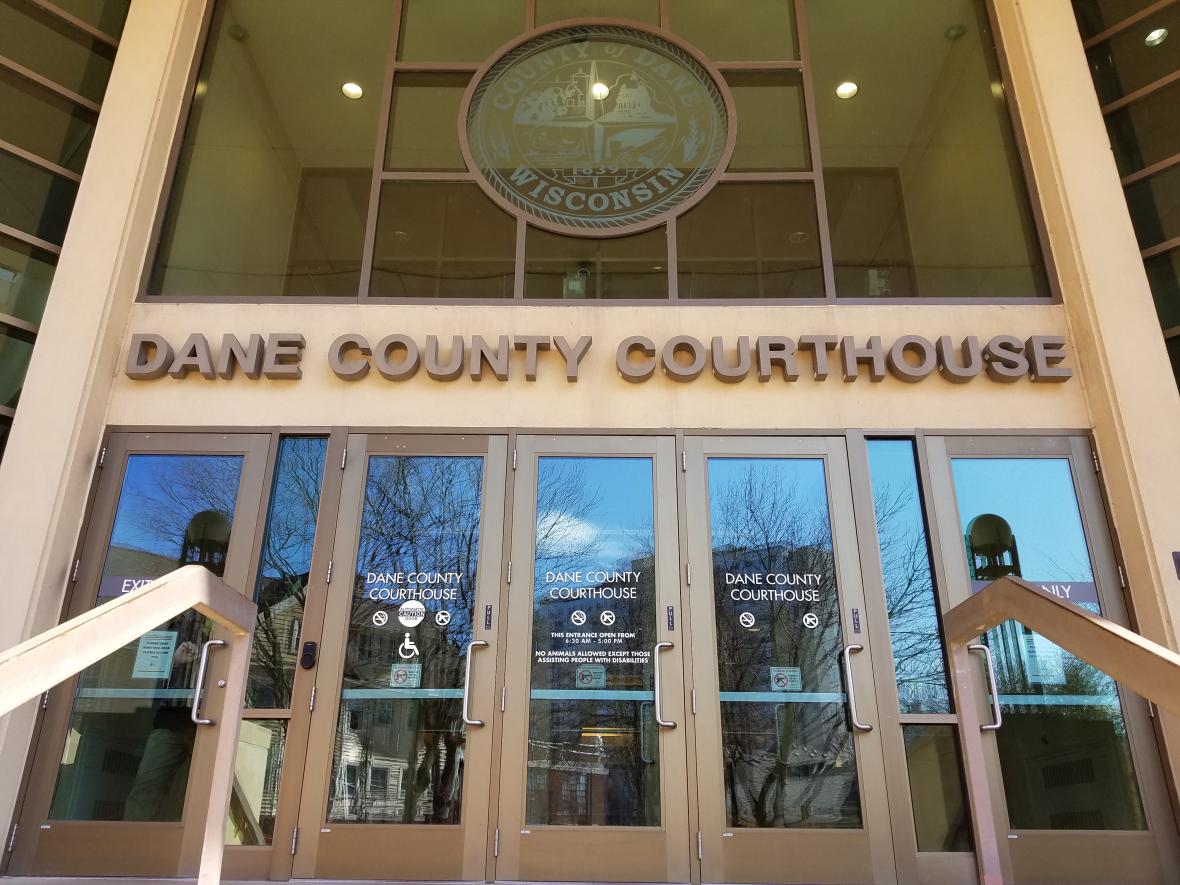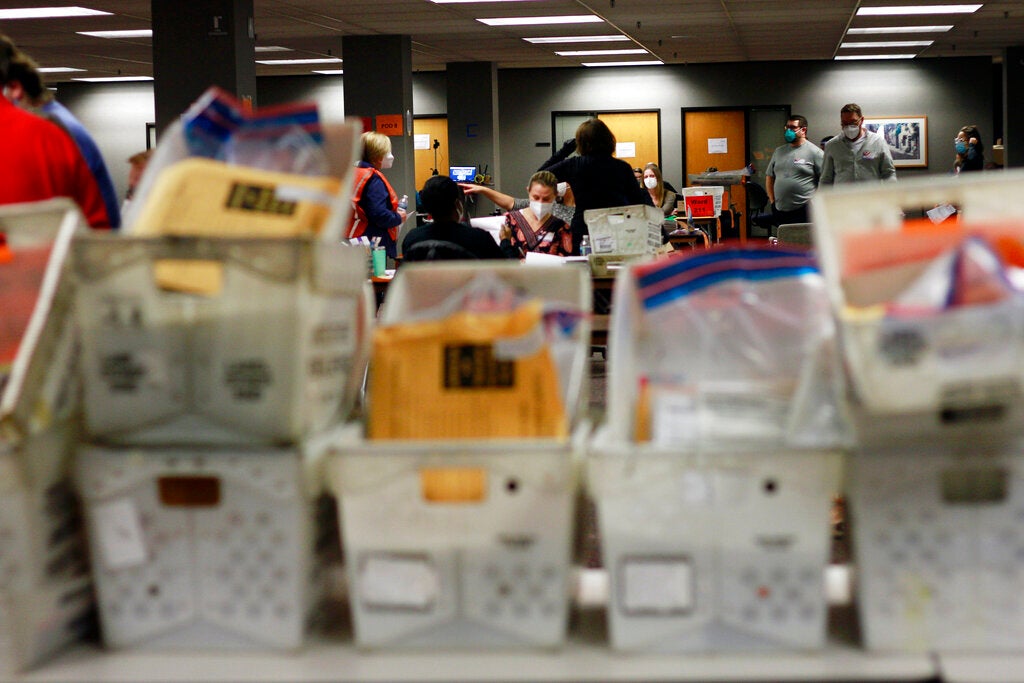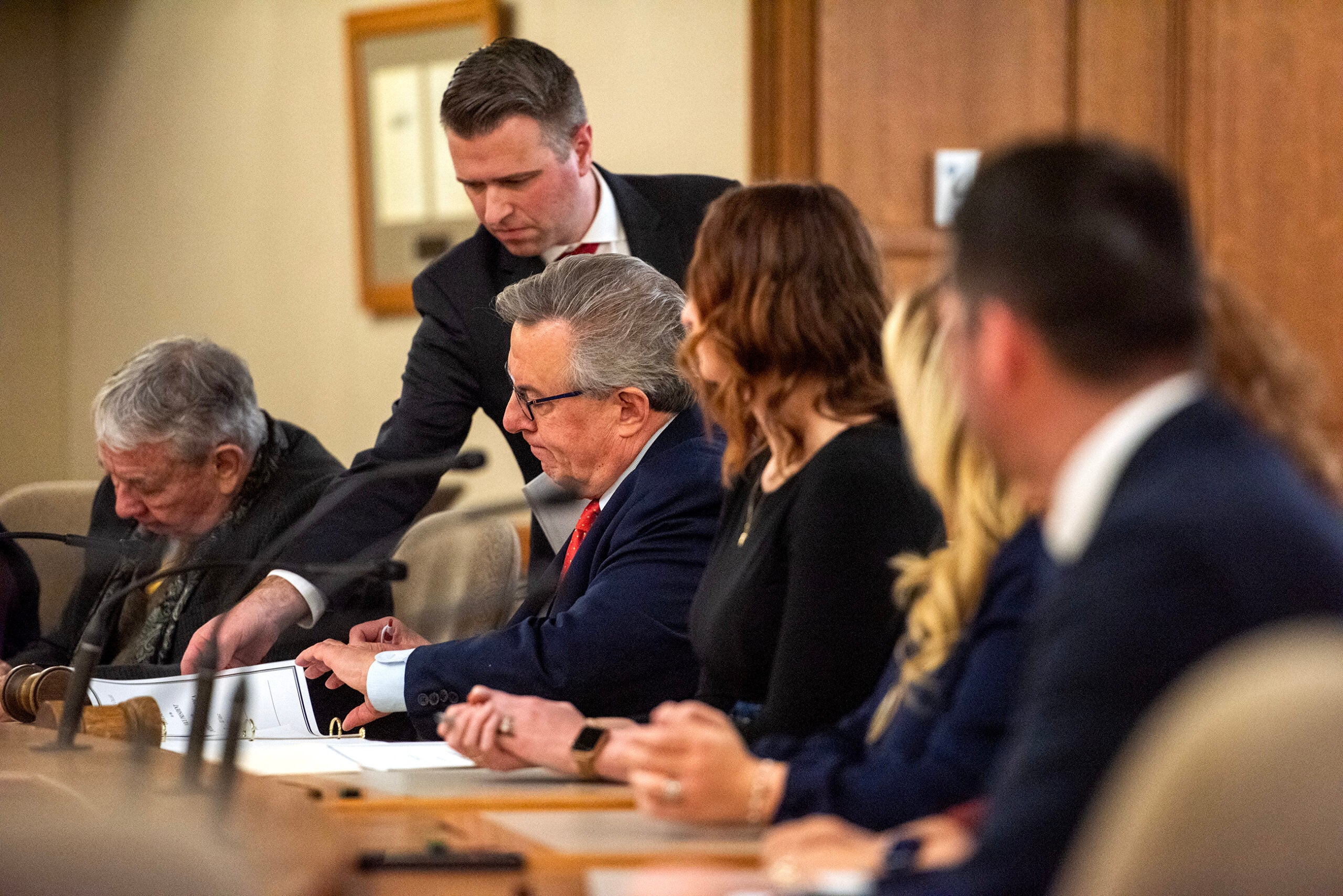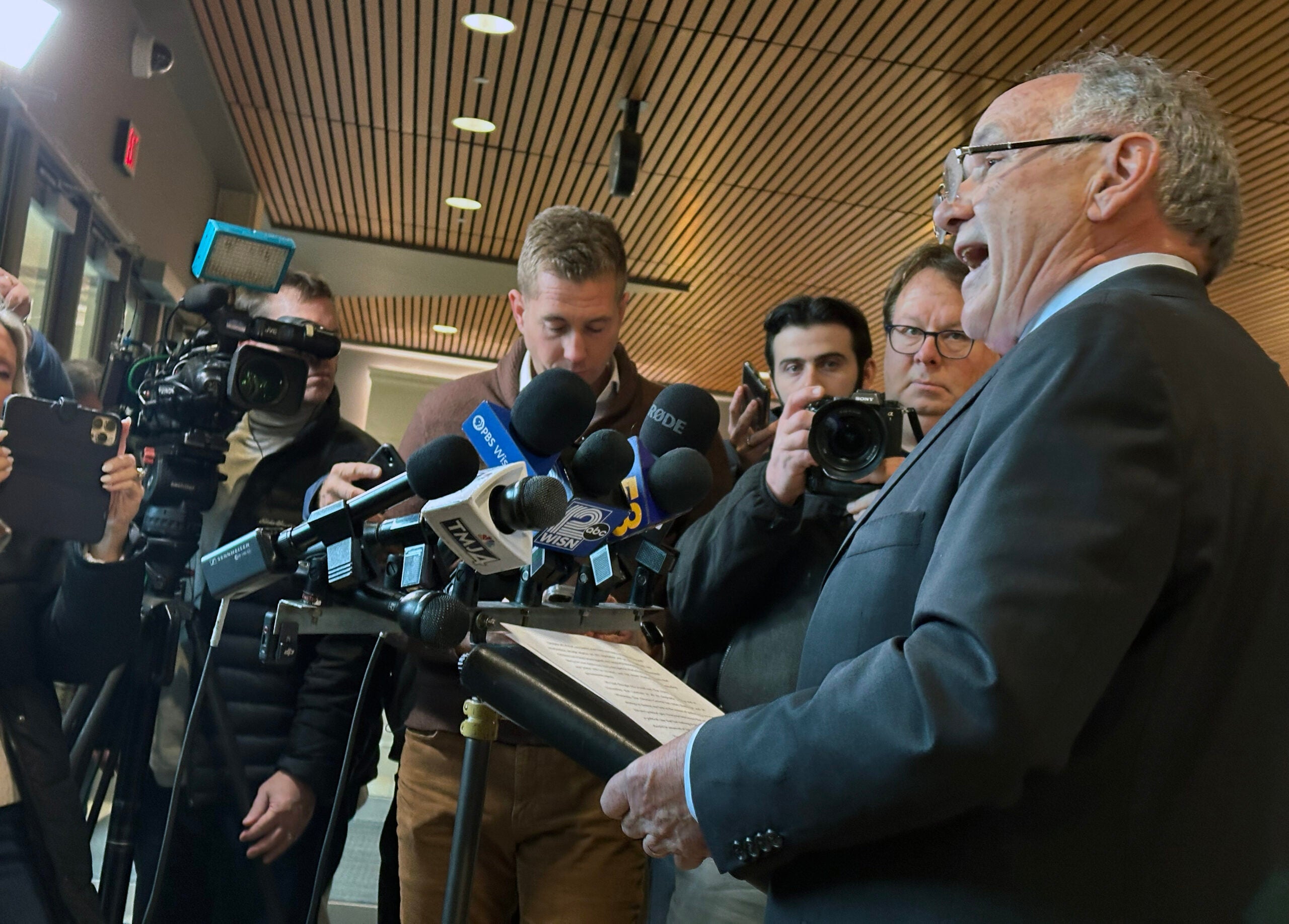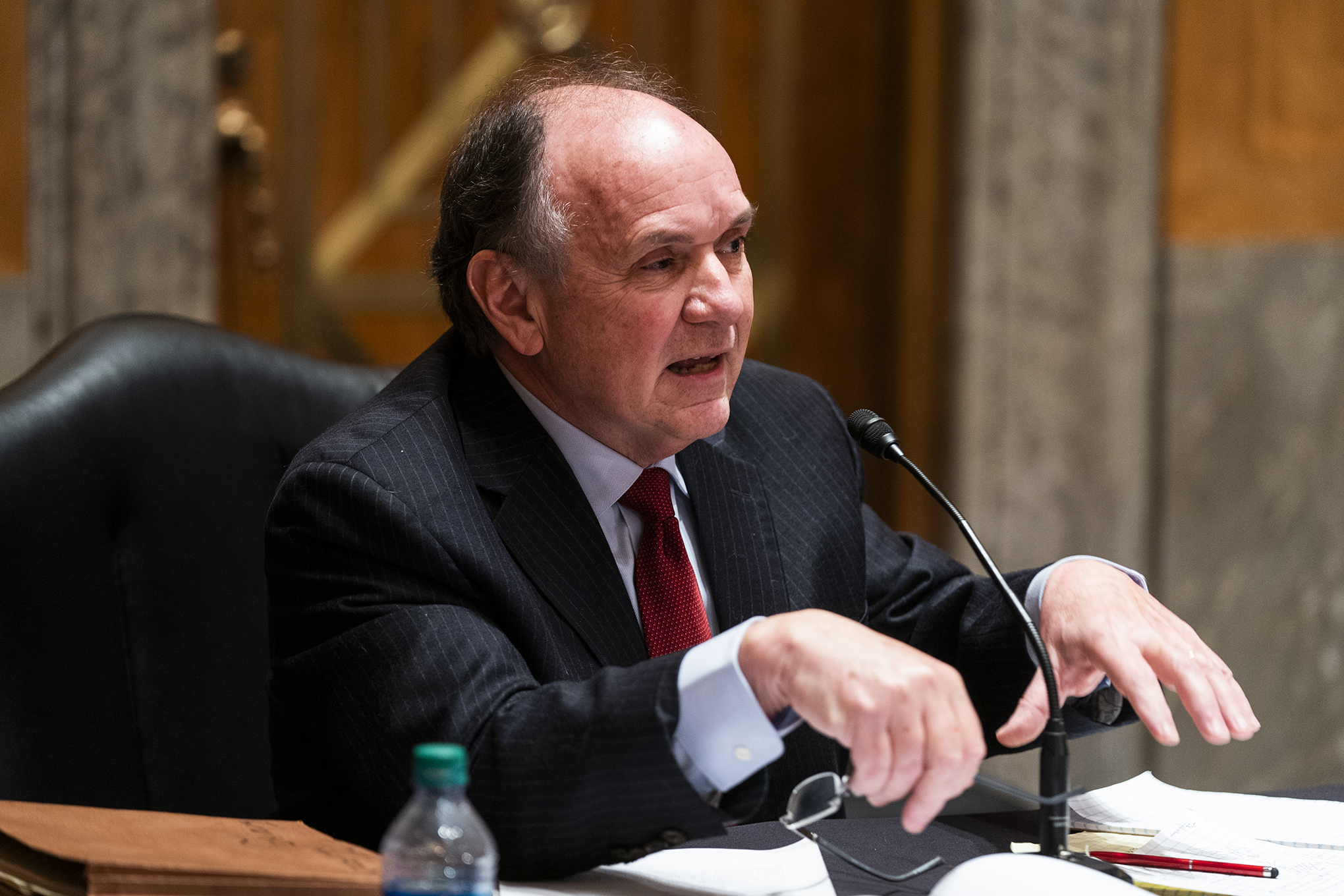A group of Democrats is suing the Wisconsin Republicans who posed as presidential electors following the 2020 election, arguing their actions set the stage for the Jan. 6, 2021 insurrection of the U.S. Capitol and could be replicated in the future if they’re not punished.
The lawsuit, filed Tuesday in Dane County Circuit Court, asks a judge to find that 10 Republicans and two attorneys who advised them broke a variety of laws, including one that bans people from falsely acting as public officials.
The lawsuit comes after the bipartisan Wisconsin Elections Commission already rejected a formal complaint against the Republicans, who have argued they were preserving legal options for former President Donald Trump. Additionally, Wisconsin Attorney General Josh Kaul, a Democrat, has declined to charge the false electors.
Stay informed on the latest news
Sign up for WPR’s email newsletter.
But Jeff Mandell, the lead attorney bringing the case for Democrats, said there needs to be consequences for the false electors, who were pivotal to Trump’s strategy to try to overturn the results of the election on Jan. 6.
“If we do not clearly say, ‘This was wrong, this was illegal, this can never happen again,’ we are inviting it happening again,” Mandell said in an interview with Wisconsin Public Radio. “And especially here in Wisconsin, where we perennially have very close elections, that’s a tremendous danger to our democracy.”
Republicans named in the lawsuit met at the state Capitol to cast votes for Trump on Dec. 14, 2020, the same day Wisconsin’s Democratic electors cast Wisconsin’s official electoral votes for President-elect Joe Biden.
Both meetings happened shortly after the Wisconsin Supreme Court rejected the Trump campaign’s last remaining lawsuit in Wisconsin seeking to overturn Biden’s victory in Wisconsin. Trump and his allies had previously lost several cases challenging election results in both state and federal courts.
Wisconsin’s actual electors sent official documents affirming Biden’s victory to the president of the U.S. Senate, the Wisconsin secretary of state, the National Archives and the chief judge of the U.S. District Court for the Western District of Wisconsin. The Republicans posing as electors sent their own official-looking documents to the same places.
Mandell, who is lead counsel for the liberal group Law Forward, said his clients would like a judge to issue an order requiring Republicans to correct the historical record.
“So that anyone who was to look at the National Archives or other places where the papers that they fraudulently submitted have been stored would also find a copy of the court order saying that this was illegal,” Mandell said. “And we’d like the court to say that none of these folks can ever participate as presidential electors in the state of Wisconsin.”
Mandell said Democrats would also ask a judge to assess a fine of up to $2,000 per person for wrongdoing. He said they’re also pursuing punitive damages of up to $200,000 per person.
The state law banning people “from falsely assuming to act as a public officer” states violators are guilty of a felony punishable by up to three and a half years in prison.
The Democratic plaintiffs bringing the lawsuit include Khary Penebaker and Mary Arnold, two of the official electors who cast votes for Biden. They also include Democratic activist Bonnie Joseph.
Defendants include all 10 of the Republicans who acted as electors: Andrew Hitt; Robert Spindell; Bill Feehan; Kelly Ruh; Carol Brunner; Scott Grabins; Kathy Kiernan; Darryl Carlson; Pam Travis; and Mary Buestrin.
Hitt was the chair of the Republican Party of Wisconsin at the time. Earlier this year, he was subpoenaed by the U.S. House of Representatives Select Committee to Investigate the January 6th Attack on the United States. Ruh, who was until recently a member of the De Pere Common Council, was also subpoenaed because she was listed as the secretary for the group.
Spindell is one of three Republican appointees to the six-member Wisconsin Elections Commission, where at least some Democrats have called for his removal. Mandell argues Spindell should have been disqualified from voting on the formal complaint against him.
Feehan, the chair of the La Crosse County Republican Party and a former candidate for the state Legislature, is on the leadership committee for former Lt. Gov. Rebecca Kleefisch’s gubernatorial campaign.
Also named as defendants in the lawsuit are attorneys Jim Troupis and Kenneth Chesebro, two attorneys who helped steer the GOP electors strategy for Trump.
Chesebro, a Boston attorney, wrote a memo to Troupis dated Nov. 18, 2020 that was obtained and published earlier this year by The New York Times. Troupis was the lead attorney for the Trump campaign in Wisconsin. The memo, which was written the same day the Trump campaign asked for a partial recount of Wisconsin’s election results, is the earliest document on record outlining the Trump campaign’s plan to use “alternate” electors to contest the election.
After the Wisconsin Elections Commission ruled in Republicans’ favor in March, Hitt said in an email to The Associated Press that he was grateful for the decision.
“I had no illusions the actions we took as Republican electors … were going to change the rightful result of the election either in Wisconsin or nationally,” Hitt told The AP in March. “We simply gathered on the advice of legal counsel to ensure all options were preserved in case of a court decision favorable to the Trump legal team in ongoing litigation.”
In an emailed statement, Paul Farrow, chair of the Republican Party of Wisconsin, called the lawsuit frivolous.
“This frivolous lawsuit from a liberal group is yet another Democrat attempt to resurrect a baseless story from two years ago,” Farrow said. “Even the Wisconsin Elections Commission voted unanimously to not sanction anyone. Democrats have tried to use this event to distract from their abysmal record on election reform. It didn’t work then and it won’t work now.”
Mandell is formally appealing the Wisconsin Elections Commission’s decision in court. He said that case is more narrowly tailored to state election laws, whereas the latest complaint is more broad.
The Wisconsin Republicans who posed as electors were not alone in 2020. The U.S. House Committee that subpoenaed Hitt and Ruh also sent subpoenas to false electors in Arizona, Georgia, Michigan, New Mexico, Nevada and Pennsylvania.
Wisconsin Public Radio, © Copyright 2025, Board of Regents of the University of Wisconsin System and Wisconsin Educational Communications Board.
